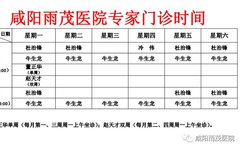1.Spinach (Bōcài)
Spinach is rich in iron, and its blood-nourishing effect is related to its abundant content of carotene and vitamin C. Carotene can treat night blindness and regulate various cellular functions, benefiting various bleeding disorders. Vitamin C acts as a reducing agent, converting ferric iron (Fe3+) to ferrous iron (Fe2+) for better absorption by the body, thus having a certain therapeutic effect on anemia.
2.Dried Longan Flesh (Gān Lóngyǎn Ròu)
This blood-nourishing food is very famous in folk medicine and is definitely the first choice for families looking to enrich their blood, as it contains a very high amount of iron. In addition, it is rich in vitamins A, B, as well as glucose and sucrose, which are beneficial for treating forgetfulness, palpitations, and insomnia due to neurasthenia.
3.Black Raisins (Zǐ Pútao Gān)
Black grapes are excellent blood-nourishing fruits. When dried, they contain about 9.1 mg of iron per 100 grams. Moreover, during the drying process, the grape skins, which are nutritionally superior to the flesh, are preserved, aiding in the retention of stable nutrients such as iron, zinc, manganese, protein, and antioxidants.
4.Lotus Root (Lián’ǒu)
Lotus root is mild in nature; fresh lotus root stops bleeding, while cooked lotus root nourishes the blood. Eating raw lotus root can clear heat and cool the blood, stop bleeding, and disperse bruises, while cooked lotus root can strengthen the spleen and stomach and nourish the blood. Patients with nasal or oral bleeding can urgently consume fresh lotus root juice for rapid hemostatic effects. Women benefit from eating lotus root, but it is not advisable to eat raw lotus root during menstruation or for those with a history of cold-induced dysmenorrhea. Diabetics should avoid eating cooked lotus root or lotus root powder.
5.Black Dates (Hēi Zǎo)
Among dried dates, black dates and honey dates are the most esteemed, containing about 3.7-3.9 mg of iron per 100 grams, making them excellent blood-nourishing foods. Dried dates are also rich in vitamin C, which is an important factor in promoting iron absorption, making the body’s uptake of iron more efficient. However, dried dates are high in dietary fiber, which can hinder digestion, so they should not be consumed in excess daily and are best used in soups or porridge.
6.Black Sesame (Hēi Zhīma)
Black sesame enters the liver, kidney, lung, and spleen meridians, with effects of nourishing blood, improving vision, promoting lactation, and benefiting the liver and hair. Consuming sesame can enhance the kidney’s ability to produce blood, the liver’s ability to store blood, and the spleen’s ability to regulate blood.
7.Angelica (Dāngguī)
Angelica is associated with the liver, heart, spleen, and large intestine meridians. Through long-term clinical observation, traditional Chinese medicine has clearly defined its main functions of nourishing blood, invigorating blood circulation, regulating menstruation, alleviating pain, and promoting bowel movements.

